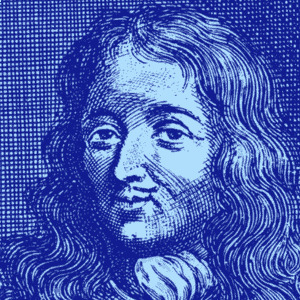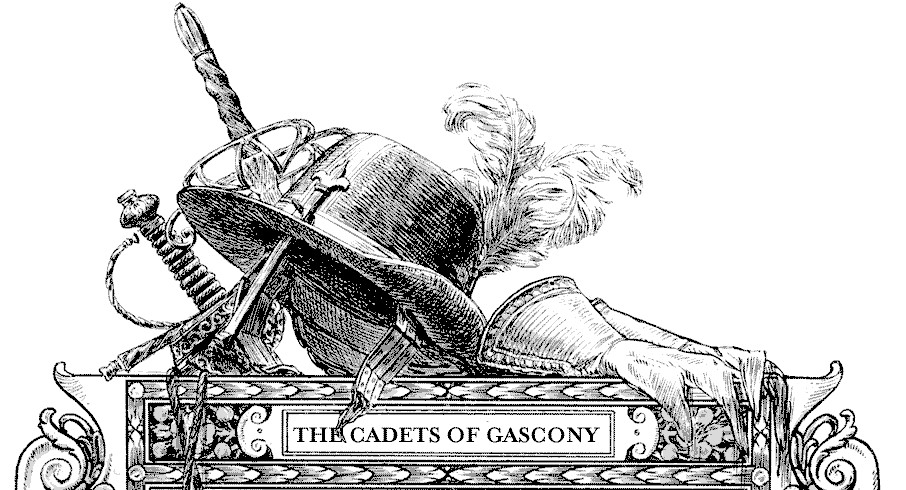
“The Cadets of Gascony” … a term that has become almost generic, at least for the French, and to the point that we automatically associate “the cadets” with Gascony. But what are the reasons behind this association?
Of course, what immediately comes to mind is the famous monologue by Edmond Rostand’s Cyrano de Bergerac: “We are the Cadets of Gascony …” …A monologue that has cemented the epithet in our minds.
But, like all expressions that become a part of our common culture over time, even this fictitious reference has its grain of truth and authenticity.
For, even in the English language, the word cadet can designate a second-born child, or any of the younger children in a large family. And if, in any family with more than one offspring, there is always an eldest child and a cadet (or cadets), we can say that in Gascony, the word takes on a particular meaning. And this, for several reasons.
First, it is useful to remember that, in sixteenth century France, a couple’s first child was called aîné, the second child and any other children that followed receiving the designation of puîné. Aîné comes from the Old French ains (modern French: avant), meaning “before”, while puîné comes from puis + né, that is, “born after”. As is the case elsewhere in the world, being born “before” gave the eldest child a number of rights and privileges, particularly in matters of inheritance and succession. He enjoyed what was called le droit d’âinesse (“the right of the first-born”).
But, French was not the native tongue of the people of southwestern France. The Gascons, for example spoke, as their first language … Gascon. And the Gascons had another word to designate the younger child: capdet, meaning “captain” or “chief”. Over time, the French word puîné was replaced by cadet, a French corruption of the original Gascon word.
But, what does a “captain” have to do with “second-born”? At first glance, the link is not obvious. However, this relationship was quite obvious for the Gascons living in the fifteenth century, so obvious that the term cadet was a part of everyday language. And the fact that the term, even transformed, made its way into the French language is a reliable indication of the widespread nature of the social phenomenon of primogeniture in early modern France. More, it also speaks volumes of the influence that the Gascons had on the entire French kingdom, because almost all the second-born male children from genteel Gascon families were also captains in the armies of the king of France…
There is nothing accidental about this phenomenon, and we can find its roots in the particularities of Gascon culture. For, the Gascons had their own laws and customs when it came to inheritance.
Indeed, the customs regarding succession in Gascon determined the “vocation” of all the younger children of a family.
The hard conditions for second-born children in Gascony are traditionally attributed to legislation regarding matters of succession, intensified in most cases at the end of the Middle Ages. Indeed, this could be due, in part, to the influence of ancient customs from the Pyrenees on the southern margins of Gascony. [This custom] stipulates that, for each generation, and in order to insure the continuation of the lineage, the father transmit [this lineage] along with his possessions to a sole inheritor, without division. On the other hand, the Hundred Years’ War, the devastation that it caused and the crisis that followed, in Armagnac and the Agenais in particular, would have played a decisive role in an important realization: that of the necessity of such a concentration of the rights of succession in order to prevent division of property, and with it, disintegration of the family’s fortune.
Véronique Larcade, Les Cadets de Gascogne. Empreinte Editions, 2000.
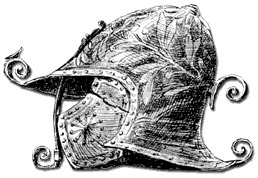
Hence, succession in Gascony was determined so that only one child inherited the totality of the family estate, without division among his brothers and sisters, with an eye to protecting property.
But the notion of first-born –and consequently, that of cadet—was more complicated than that. For, in Gascony, the aîné was not necessarily the eldest child, the “first-born” as tradition would have it in the rest of France.
The region that includes the Gers part of Gascony is at the confluence of a number of [cultural]zones with opposing practices, of different origins, and in which receiving and conserving the right [of succession]did not follow the same evolution of practices. [The region] had to adapt to all these influences and develop its own approach and way of expressing this succession.
(…) Succession practices in the Gers part of Gascony have never dictated an order of succession, nor a hierarchy among the inheritors; thus the parents could designate any one of their children who seemed to them to be the most worthy to succeed them and perpetuate the property, the family and all that goes with it.
(…) And so, there is neither designated possession nor pre-established choice of heir; (…) This liberty often leads to the designation of a daughter as heir to the detriment of the other children and even the male children (…)
Family reproduction is a model of inequality that privileges an heir freely chosen by the parents, with the direct consequence of depriving the other offspring of their rights by limiting them to a part of the inheritance that is sometimes next to nothing.
For every designated âiné there are always one or more institutional cadets (…) This selection of an heir by the parents, and acceptance of the fact by the other children, is a generalized and accepted practice.
Christophe Jankowiak, Le notaire et la transmission successorale du patrimoine familial en Gascogne gersoise 1785 – 1805. Doctoral thesis
This particularity concerning the transmission of inheritance –even to a daughter—has ancient origins.
This tradition could go back to Aquitanians of the first century B.C., whose blood was mixed with that of the Iberians from the other side of the Pyrenees. We know now that the Romans were surprised by the customs of this people, whose warriors were robust, courageous and formidable. In addition to their heritage of bravery –which the Gascon soldier would exhibit much later—these people held a certain consideration for women, who played an important role in their society.
One must certainly impute to the Aquitanians a curious custom that one finds in the little Gascon states near the Pyrenees during the Middle Ages and that endured until the seventeenth century (…): the equal rights of sons and daughters concerning their parents’ inheritance. This equality was so total that if the eldest of the children was a girl, it was she who remained mistress of the family household, to the exclusion of the cadets.
Louis Puech, Histoire de la Gascogne. Auch, 1914.
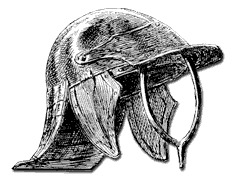
It is thus that the concept of âiné created institutional lesser children who were obliged to leave the household in order to make a living. Though they had not been “chosen” for their abilities in estate management, these cadets certainly possessed other qualities that they were forced to employ in other domains.
And so, these “second-born” had received another inheritance that had nothing to do with land or possessions: the same blood as their progenitors. The same blood that flowed in the veins of the Aquitanians so many centuries before them and that had given a warrior’s spirit to this people.
If noble cadets are disadvantaged in an obvious way, those of the other land-owning classes generally experienced situations that were just as precarious… the cadets’ rather unenviable destiny is the source of a real movement of emigration (…) But the preferred escape route is, above all, the army, just as much for the second-born of the lesser nobility as for others. The memoirs of Jean d’Antras reflect this phenomenon. The troops gathered in Gascony in 1567 were referred to as “brave young men, capdets of the country” (A. Communay, 1894). In fact, since at least the thirteenth century, there was not a single army raised in France that did not include entire companies of foot soldiers from Gascony. And to these real Gascons were added fake Gascons, because the reputation [of the former] was such that, to show off back at the camp, one would imitate their mannerisms and their accent, punctuating one’s phrases with “Cap de Diou”.
We can understand, for this reason, their quickness to take advantage of opportunities in the army and at war. The “memoirs” of the chevalier Jean d’Antras, entitled Le capdet sans reproche reflect this.
Véronique Larcade, Les Capitaines Gascons à l’époque des guerres de religion. Christian, 1999.
And so, in search of fortune, these cadets of Gascony left for the battlefield with their swords at their sides and their courage as their standard, becoming fearless and formidable soldiers wherever they went.
Gascony’s warlike vocation would find its expression (…) in military enrolment far from Gascony, long reserved for second-born sons who did not receive estates or ancestral lands that had become too small and too difficult to exploit. These second-born were, at the least, “captains” (in Gascon: capdets). Their name thenceforth served to designate a younger child in French vocabulary (cadets).
Renée Mussot-Goulard, Histoire de la Gascogne. PUF, 1996.
These men’s fiery temperament and their abilities in war craft made them a legend to the point of influencing the vocabulary of the French language.
And so, it is only just that we honor this link between Gascony and Cadets, because this ancient province is the mother country and instigator of the term.
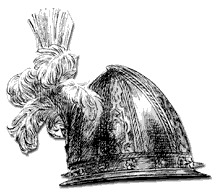
These are the cadets of Gascony
Of Carbon de Castel-Jaloux:
Bettors and braggers without grief
These are the sons of Gascony!
Speaking blazon, shield and club,
All more noble than a cur,
They are the cadets of Gascony
Of Carbon de Castel-Jaloux.
Eagle-eyed and stork-legged,
Mustache of cat, teeth of wolf,
Splitting the canaille that grumbles,
Eagle-eye and stork-legged,
Aigrette’s feathers hiding the holes
Of their cruddy coif!
Eagle-eyed and stork-legged,
Mustache of cat, teeth of wolf!
Pierce-Belly and Buster-of-Heads,
These are their sweetest epithets;
Drunk on glory, their soul knows not shame!
Pierce-Belly and Buster-of-Heads,
They always answer the reveille,
Wherever one breaks the head of an enemy…
Pierce-Belly and Buster-of-Heads,
These are their sweetest epithets
Behold the Cadets of Gascony,
Who make the jealous husband horn-mad!
O unchaste woman who art love-mad,
Behold the Cadets of Gascony!
Let the vile old man scowl:
Sound, clarions! Sing, cuckoos!
Behold the Cadets of Gascony
Who render the jealous husband cuckold!
(From Cyrano de Bergerac by Edmond Rostand)
